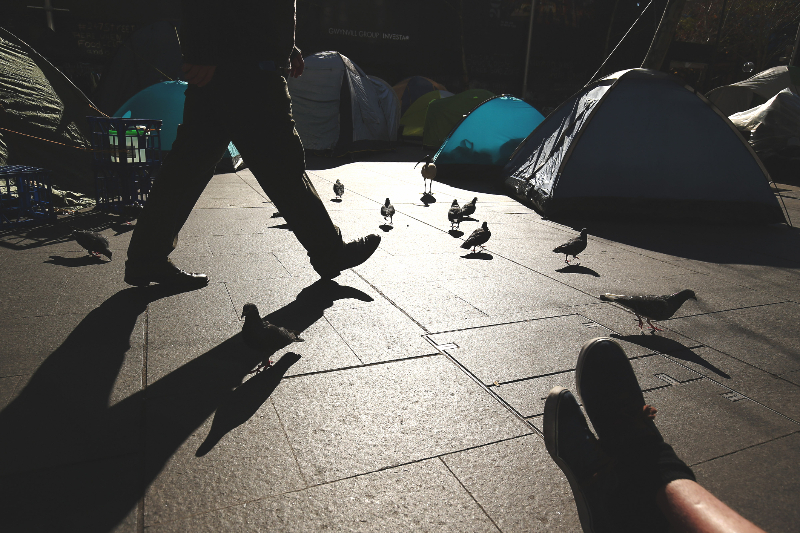Extract from Eureka Street
- Home
- Vol 31 No 21
- Poor-blaming lets governments off the hook
- Claire Victory
- 26 October 2021
Last week, former NSW Liberal minister Pru Goward contributed an opinion piece ‘Why you shouldn’t underestimate the underclass’ in the Australian Financial Review, which, since publication, has been widely condemned as offensive, owing to its contempt for lower socio-economic Australians. ‘They are damaged, lacking in trust and highly self-interested’, the article begins.
Referring to disadvantaged people as ‘proles’, Ms Goward writes: ‘Like the stoats and weasels of the Wild Wood in The Wind in the Willows … they rejected the rules and lived by their own. They were to be feared and were, to use my mother’s words, not very nice’, and ‘they are over-represented in their use of government crisis services and are always the last to give up smoking, get their shots and eat two servings of vegetables a day.’ And yet Ms Goward claims to ‘like’ the people she writes about, because ‘they call us out.’
In light of the above, I feel it is important to share my experience of being involved with the St Vincent de Paul Society for 27 years. The people described by Ms Goward are not the people I’ve visited, helped and interacted with in my time with the Society.
The people we assist are often the first ones to give away what little they have. I remember a home visit, delivering a box of food, sitting with this guy and hearing his story, and feeling how meagre this box of food was given his significant needs, yet he was so grateful and speaking of how he would be sharing it with the single mum next door because she has a kid and they struggle to get by. This sort of thing is more the rule rather than the exception. These are not people driven by naked self-interest.
Marginalisation and disadvantage are, by their nature, circumstances that make human flourishing difficult. But when we know that parents on JobSeeker are forced to live below the poverty line on $44 a day and often go without meals to feed their children, to then complain that these are the people who are the last to ‘eat two servings of vegetables a day’, is hypocritical and cruel.
The Society advocates strongly and constantly on behalf of people who need assistance. The reality is that often, Governments and elected MPs just don’t want to hear the message, let alone be brave enough to do anything about it.
'We don’t need further commentary that gives people who are well off yet another excuse to demonise people living in poverty and to blame them for their circumstances. It lets governments off the hook – governments which should be addressing the structural causes of poverty.'
We don’t need further commentary that gives people who are well off yet another excuse to demonise people living in poverty and to blame them for their circumstances. It lets governments off the hook — governments which should be addressing the structural causes of poverty.
If people living with poverty are ‘over-represented in their use of government crisis services’, perhaps governments might consider investing in the well-being of all people living in Australia. As long as this stigma is perpetuated and even encouraged, some people will find it difficult to access the services they and their children need.
Of the hundreds of home visits I've done, I'm yet to meet a person who is capable of working but simply doesn't want to or thinks it’s easier or better to exist on Centrelink payments. I know of one woman who is on a Disability Support Pension who would love to work, and has been applying for jobs, but is unable to secure work because potential employers don’t want to employ someone with a disability. For her, work would almost be a break from full time parenting and grandparenting. When I visit her, I am often there for an hour as she talks — so full of life, love and joy because of her family. She glows with pride despite the fact the housing trust place she shares with her adult children and their kids is sub-par because repairs they’ve requested are not a priority. These are not people entirely lacking in discipline.
During the pandemic, an unprecedented number of people accessed Centrelink payments, some for the first time — people who never thought they’d experience unemployment, now faced with that very prospect. Their children had to join the dole queue.
Most of us are just a pay cheque or one or two life events away from hard times. If we miss a few pays, and deplete our savings, we are at the mercy of a system that currently judges and demeans. If we become unwell, lose our job, or go through a relationship breakdown, we often have little to draw on. And this is especially so for people with limited resources and support networks.
Providing a hand up for people who fall on hard times not only keeps children out of poverty, it acts as a stimulus for the local economy. And in the long term, if we invest in children and families early, we save in the long run, keeping young people meaningfully engaged in the community and contributing to society.
Ms Goward is welcome to her opinion, but to use a rare opportunity in a national daily to peddle this stuff is an opportunity lost for serious debate about the issues currently facing people living in Australia. As a nation, we already make people feel bad for being poor. The rhetoric in articles like hers only contribute further to that marginalisation.

No comments:
Post a Comment